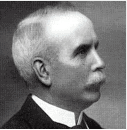Whenever I try out software, I always, out of habit, send the vendors a report that says exactly what I thought of it, in a considered and, I hope polite, way; but frank. Often, I’ll add my opinion of their marketing efforts, and, nowadays, the impression I get of the website. Often, it is just little more than a ‘thank-you’ note, but if I feel that a company could actually benefit, I put more time into it. The response varies according to the rich diversity of human behaviour, but I haven’t been physically attacked yet. I’ve had sad emails back like ‘I must learn to write better software‘, and many persuasive messages saying that any negative points I’ve made are due to my stupidity. My feedback sometimes starts a dialog with the developers of the software, and on more than one occasion, I’ve helped them actively as a result. It can a very rewarding experience, especially when you get the advice right, they follow it, and they see the benefit. I’ve made many friends as a result, and even gained some business, but that isn’t really the reason I do it. When I started out in developing software for sale, there was no best-practice to follow. It was in the late seventies, and we all felt like pioneers. The mistakes I made then were so stupid that, even now, I lie awake at night cringing at the memory of what we did. At one point I did something really daft. I’d written a rather cute database for tracking all the cases that solicitors within a partnership were involved in. It was a job-tracking system. I wrote it in 8080 assembler. I started to sell it. Unfortunately, in my ignorance, I named it the same name as one of the more popular mainframe Timesharing systems for lawyers. A wise old manager from the software house that owned the system phoned me. He was reproachful, but he couldn’t keep the humour from his voice. I apologised profusely, claiming in mitigation that I was a bit half-witted, and slightly out of control. He detected that I was new to the business of software. To my surprise, he took the time to give me a crash course over the phone on what I should and shouldn’t do. He gave me lots of tips. I remember to this day almost the whole conversation. He knew the truth that the software industry prospers or withers together. I believe that giants like Microsoft, for example, must genuinely encourage startups and innovation to ensure their own continued prosperity. Duty and self-interest coincide: Those of us who have had a foothold in the business need to encourage young software companies. I realise that my own approach is probably as futile as planting acorns wherever one walks, in order to try to reforest the world, but it makes me feel better. There is, of course, such a thing as competition and rivalry in the software business, but any competent marketing man knows the lesson learned by the car companies in the Seventies: If you did an advertising campaign knocking your competitors, car sales generally suffered. An advert extolling the virtues of your car increased your sales, but also gave the message that all cars were wonderful, and increased, to an extent, your competitors sales too. We are all, in some strange way, linked together in this business.
Spotted an error?
If you've seen something in this article that needs changing, whether it's a technical inaccuracy or a typo, please let us know by reaching out to the team.





Load comments